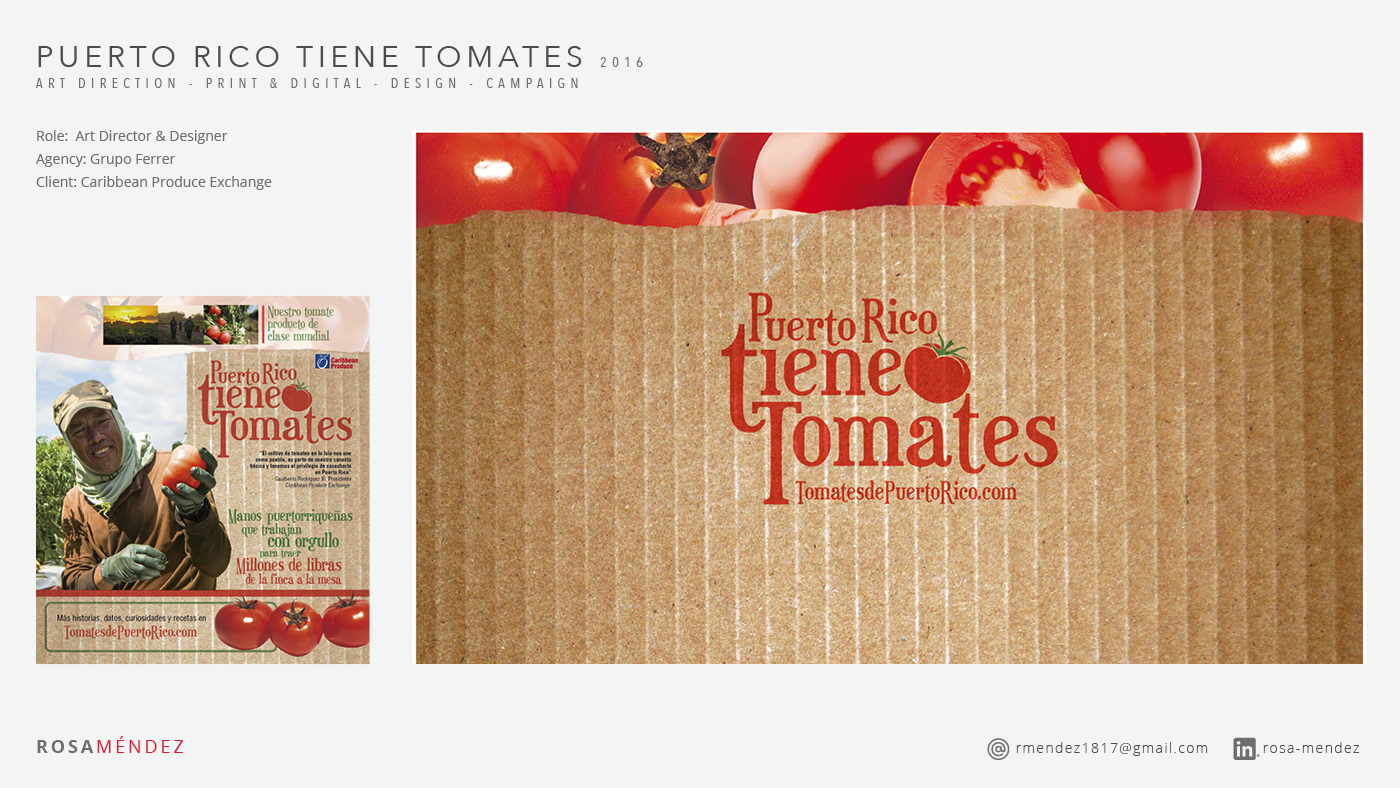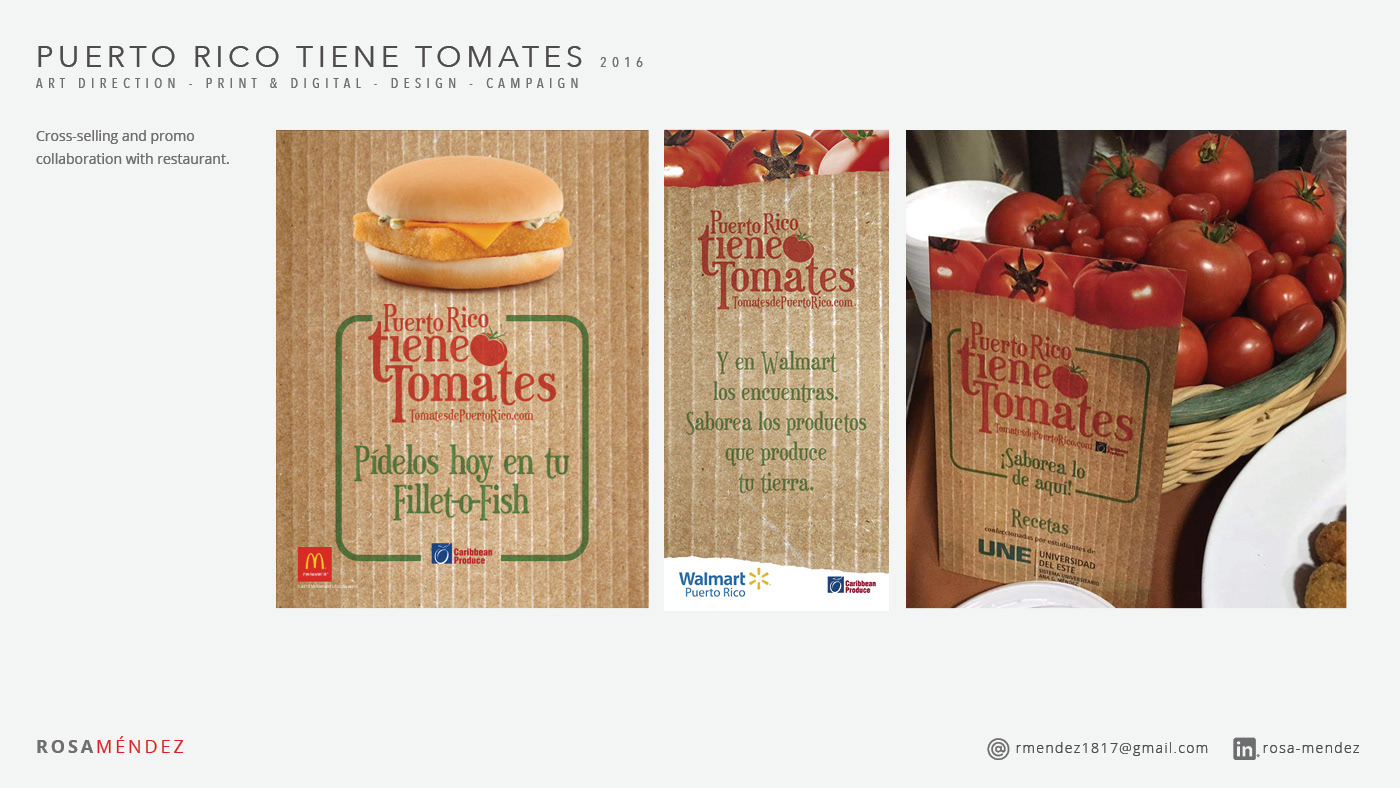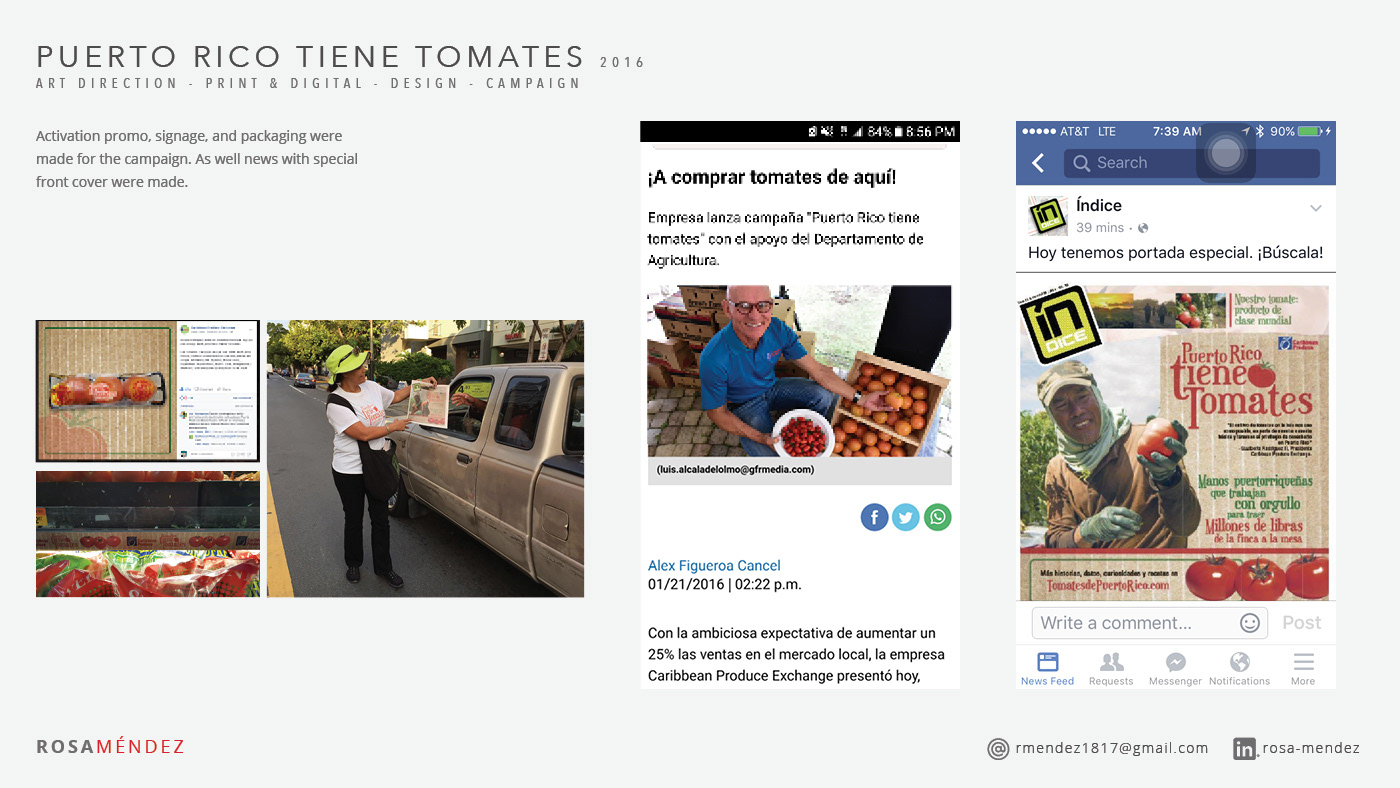As the art director for the "Puerto Rico Has Tomatoes" campaign, I was responsible for crafting the concept look from the initial rough draft to the final design. Collaborating closely with the creative director and senior copywriter, we oversaw and worked alongside a talented team of designers, copywriters, editors, and photographers to ensure the success of each video production that promoted the campaign. Centered around a social focus, the campaign emphasized the importance of planting for the future and showcase projects in Puerto Rico that demonstrated vision and commitment despite the challenging times faced by the country. The tomato, and the people involved in its production, took center stage in this campaign, which also aimed to educate Puerto Rican consumers about the nutritional and health benefits of tomatoes, as well as provide easy recipes to incorporate into daily meals.
The 2016 campaign introduced a series of videos that highlighted various aspects of the Puerto Rican tomato industry, from farm to table, featuring agribusinesses, food industry employees, and students. The campaign utilized both traditional and non-traditional media, including social networks, to disseminate its messages widely. The campaign also included the participation of tomato-producing houses, restaurants, chain stores, and supermarkets.
Various logos were made. The original one was called “de Pura Cepa” was approved by the client. But the name was already copyrighted. We went back to the drawing board with new names and a new look.
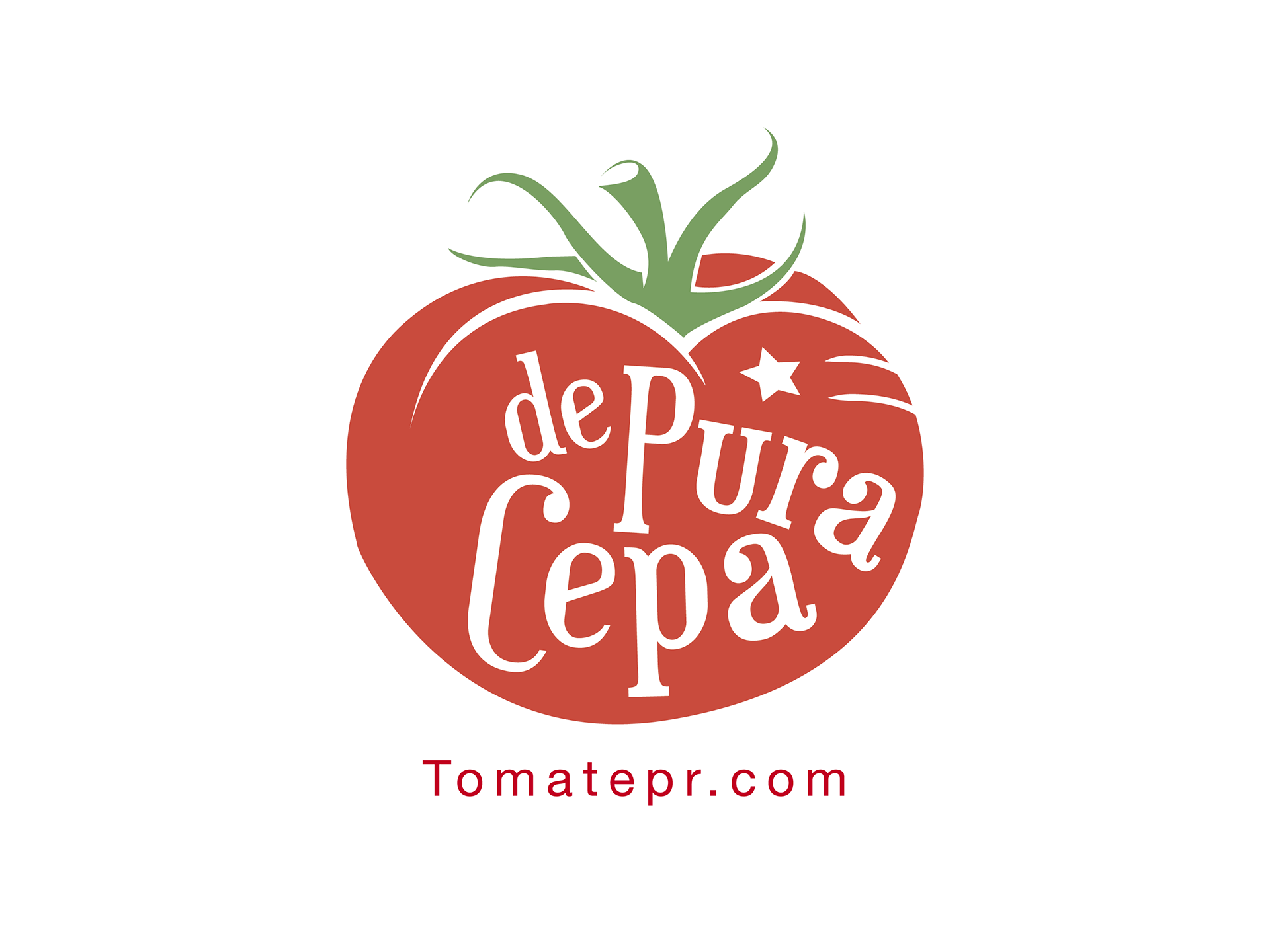
Initial first draft of logo presented.
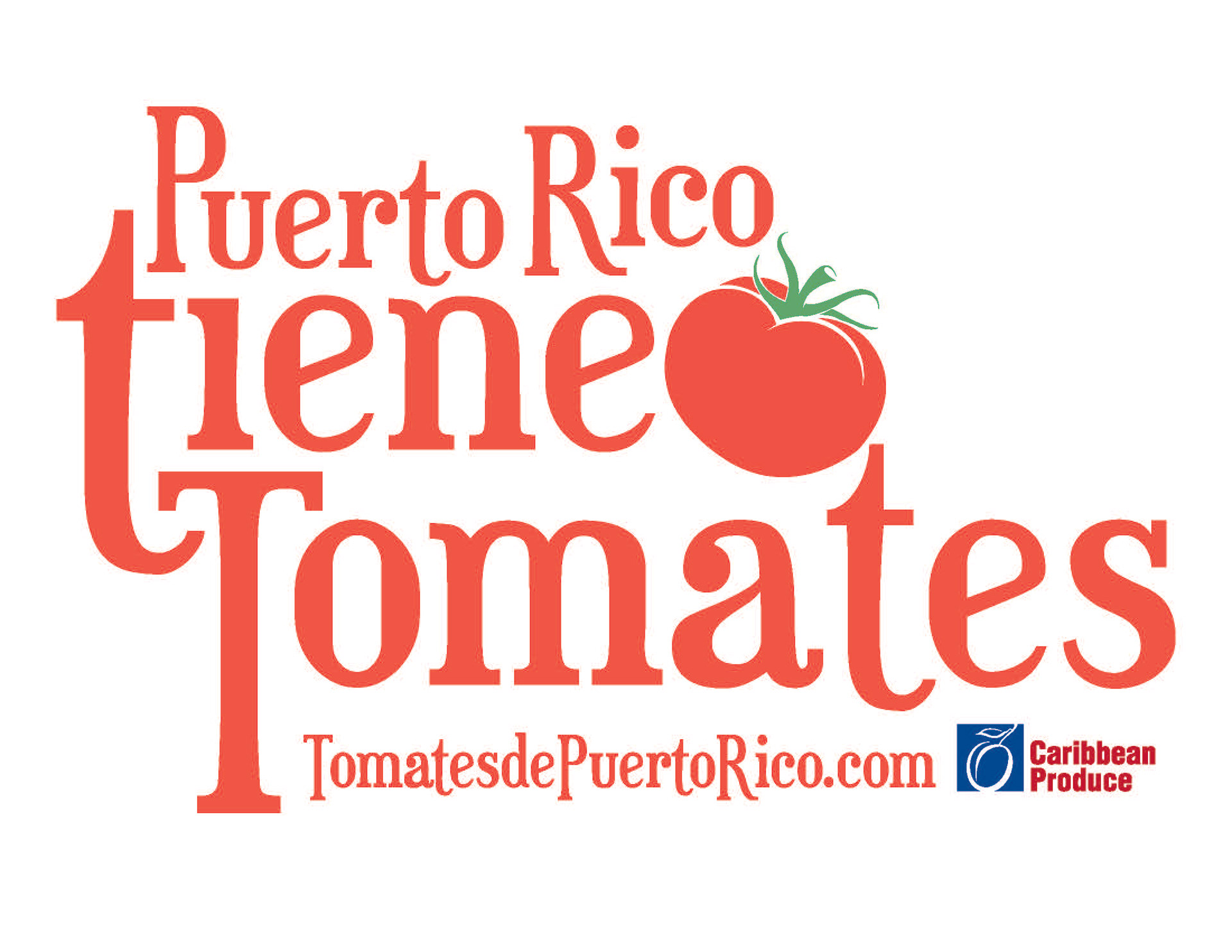
Approved logo with new name.
The "Puerto Rico Has Tomatoes" campaign was successful in promoting local tomato agriculture through the creation of five mini-series videos. As a result, there was a significant increase in followers and engagement on social media; within the first few days, the videos received over 75,000 views on the client's social media account. With two-thirds of Puerto Rico's tomato production being exported to the United States, this campaign highlighted the island's contributions to the local industry, which accounted for approximately $13.4 million through the export of 390,000 quintals of tomatoes, or 1,090,000 boxes.
